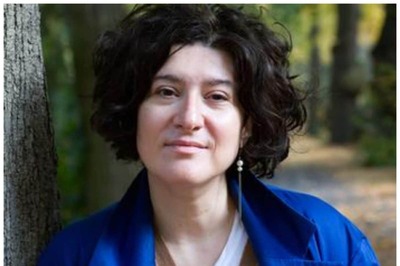
views
When Uma Da Cunha started out as a film festival programmer in the 1970s, it was quite an offbeat profession in India, especially for women. After more than quarter of a century, she continues to be a more or less alone in the game. But then, they say at the top it is always alone. Uma though does not seem to give much thought to her singular status of being one of the very few Indian programmers of international repute. In fact, the graceful lady, clad in a traditional Kerala saree, was warm and welcoming when we met her at a restaurant in the city. “Would you eat something,” she asked as we walked in. She excused herself from the company of friends and quickly found a vacant table for us to sit across, and was patient enough to initiate us on the very basics of programming. “A programmer should be knowledgeable about the cinema of a country. There are many genres of films and a progammer tends to specialise in one of those while also being a storehouse of information on cinema in general. That is what international festival organisers look for in programmers from every country. For instance, I’ve specialised in New Indian Cinema. I watch regional films made in various Indian languages and supply films for the consideration of selection panels at different festivals ,” she says, introducing us to the nuances of her job. Da Cunha’s profile says she holds a post graduation in English and trained in advertising in London. So when and how was she inspired to take the road less traveled, we ask. “Oh, even during my college days in Miranda House I was involved in the Film Society Movement and had a keen interest in cinema. Nowadays, it is easier for women to be in professions of their choice. Back, then a woman was obliged to look out for secure jobs. So I entered the advertising industry, only to find I that I was not really interested in it. So after marriage, I took up a government job with Directorate of Film Festivals in 1974. I worked there for four years and then moved out to pursue my interests and have been on my own since then,” she says, her smile cutting a long story of hard work short. Over the years, Da Cunha has branched out into casting direction and academic writing and has one of the most revered monograph ever done on Satyajit Ray to her credit – ‘Montage’. “I would love to do monographs, but you need a lot of funding for it. I did the one on Satyajit Ray for a film society. Now it is more complicated. And the interest is in only in stars and not in people of Ray’s calibre.” Da Cunha had included Adoor Gopalakrishnan in a chapter on ten distinguished Indian film makers which she wrote for Eindu an Italian publishing house.She says she is disgusted with the start system, which has hijacked the Indian film industry. “It is becoming impossible. Everybody wants a star,” she says. However, she emphsises the fact that there is no dearth of talent in Indian cinema. “The theatre actors especially are very serious,” she says and makes a special mention of Rahul Bose as a person to watch out for among the younger generation of filmmakers. “Rahul is very particular about casting and it is pleasure to work for such directors.” The films that she has enjoyed casting for include, Mira Nair’s ‘Monsoon Wedding’, Deepa Mehta’s trilogy, and ‘Lagaan’, for which she found a whole ensemble of English men and women. “I went to the English communities in Kolkotta, Mumbai and Chennai. The cast only had to look English because there were so many extras who made the backdrop.’Da Cunha also cherishes the experience for casting for BBC’s radio production ‘The Suitable Boy’. “One had to go entirely by the quality and tally of the voice. When you hear a voice, you tend to conjure up an image of the personality and these ensemble of voices had to be distinct. It was a very different experience,” she says. “Every role that I have taken up – programmer, writer or casting director – dovetails into the other. But I have enjoyed being a programmer the most because it has far reaching results. I was happy when a Konkani film by Laxmikant Shetgaonkar won the Best feature award at Cannes. Its director is working on his second project now. I enjoy the festival in Kerala because it has retained the culture of the place. IFFI Goa has lost its ethnic flavour. But, here, everything is essentially Kerala.”




















Comments
0 comment